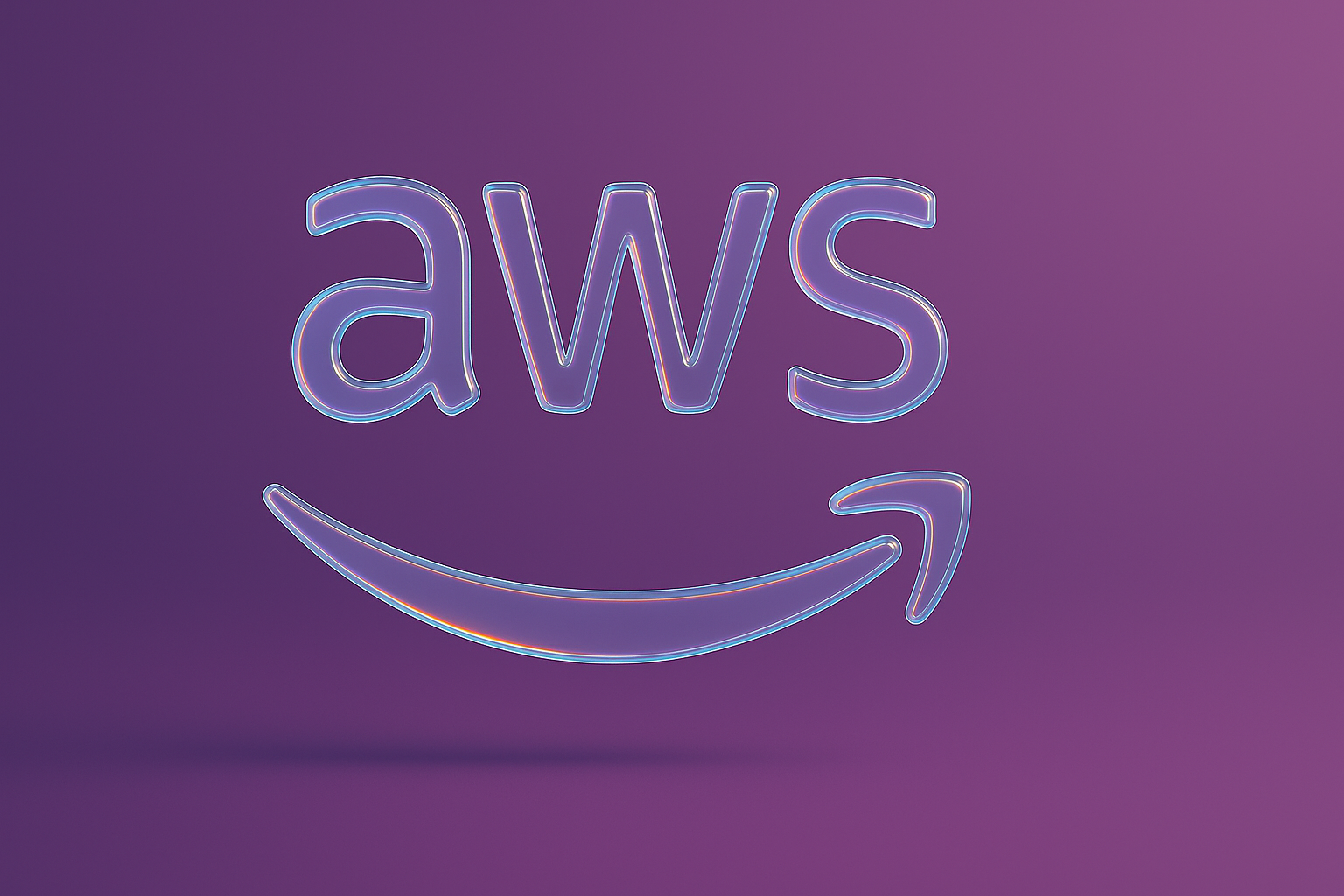Managing a supply chain is anything but predictable. Demand shifts, supply shortages, and logistical roadblocks make it challenging to maintain efficiency and control costs. Add in factors like geopolitical instability, natural disasters, and supplier reliability, and the complexity only increases.
Digitizing supply chain operations is one way to tackle these challenges, and artificial intelligence (AI) is proving to be a game-changer. Companies that integrate AI into their supply chains have seen forecasting errors drop by 50%, leading to better planning, reduced waste, and greater agility.
But how do you implement AI effectively? What steps should businesses take to ensure AI delivers real, measurable improvements?
This guide will break down how AI can optimize your supply chain, the key benefits it brings, and the challenges you’ll need to navigate along the way. Let’s dive in.
How AI Optimizes Supply Chain Operations
Supply chains rely on structure to keep things running smoothly. With so many moving parts—stakeholders, logistics, and resources—without a solid system in place, delays pile up, costs rise, and customer satisfaction takes a hit.
AI doesn’t replace that structure; it makes it stronger.
By integrating AI into different stages of the supply chain, businesses can enhance efficiency, improve accuracy, and respond to challenges faster. AI can process vast amounts of data to recognize patterns and connections, automates repetitive tasks, sharpens decision-making, and predicts potential disruptions before they happen—helping companies stay ahead in an unpredictable landscape.
What is AI in the Supply Chain?
The recent advancements in the global supply chain were sparked by the COVID-19 pandemic, which revealed the effects of a weak supply chain system. Suppliers had to rethink their approach to sourcing and distributing products to counter the supply shortage, the growing shift to online shopping, and restrictions on movement.
Integrating AI into the supply chain proved to be a game changer.
Particularly, AI subsets such as machine learning, generative AI, and NLP streamlined several processes by analyzing large volumes of raw data. Computer vision has the same effect on the supply chain. It can spot product defects before they leave the warehouse.
Each technology addresses specific challenges, whether catching a glitch in manufacturing or automating customer support to keep clients happy.
How AI Powers Supply Chain Efficiency
AI brings a level of insight and adaptability that traditional supply chain systems can’t match.
By recognizing patterns and connections across vast amounts of data, AI helps businesses maintain balance and efficiency in global supply chain management—especially in industries where timing is everything, like pharmaceuticals and food production.
AI-powered supply chain systems optimize routes, streamline workflows, improve procurement, and reduce shortages by automating tasks from end to end. Businesses can make faster decisions, cut costs, and operate more efficiently by using AI to predict disruptions—whether from supplier delays, geopolitical shifts, or unexpected demand spikes—and proactively find solutions before problems escalate.
Advantages of AI in Supply Chains
AI-driven supply chains enhance resilience and provide manufacturers with a stronger operational foundation. By building resilient supply chains, organizations can better manage disruptions and maintain operational stability. This leads to several advantages, including:
- Reduced Operating Costs: AI automates repetitive tasks like inventory tracking, quickly identifying inefficiencies and bottlenecks. By streamlining operations, it helps cut overall costs.
- Faster, Smarter Decision-Making: AI processes real-time and historical data to make immediate, informed decisions. It can analyze problems at their root and suggest solutions on the spot.
- Fewer Errors and Less Waste: AI detects patterns and anomalies, allowing manufacturers and warehouse operators to catch errors and defects early. It also integrates seamlessly into ERP systems for improved efficiency.
- More Accurate Inventory Management: AI analyzes inventory data and customer behavior by enhancing demand forecasting. It helps manufacturers adjust stock levels based on shifting demand, improving supply chain responsiveness.
- Greater Warehouse Efficiency: Machine learning models optimize warehouse layouts, improve service levels, and streamline operations. AI also determines the best routes for machinery and workers, boosting overall productivity.
- Stronger Supply Chain Sustainability: AI-driven predictive analytics help businesses optimize truckloads, select efficient delivery routes, and minimize waste, making supply chains more environmentally friendly.
- Operational Optimization with Simulation: AI-powered simulations, including digital twins, allow supply chain managers to visualize disruptions and identify ways to improve efficiency. These tools provide deeper insights and help reduce downtime.
These perks streamline operations and make your supply chain agile and proactive. In a world full of surprises, optimizing supply chains with AI offers a smarter, more adaptable way to stay ahead.
Where AI Makes the Biggest Impact in Supply Chains
AI is transforming the way businesses manage their supply chains, especially in critical areas like forecasting, inventory management, and logistics. By leveraging AI, companies can improve accuracy, reduce waste, and create more resilient operations.
Here’s how AI is making a real difference:
Forecasting and Demand Planning
AI-driven algorithms come pretty close. By analyzing everything from past sales data to current market trends—and even social media buzz—these tools can accurately forecast customer needs.
For example, tools like SAP Integrated Business Planning give businesses a clearer picture of shifting demand, helping them build resilient supply chains, reduce waste, lower storage costs, and keep customers happy by matching supply with real-time sales trends.
Inventory Management
Managing inventory can feel like juggling too many balls at once, especially within the complexities of global supply chains. AI steps in as an expert juggler, tracking stock levels in real-time, flagging slow-moving items, and automatically adjusting reorder points. It helps prevent overstocking and those dreaded stockouts.
Figuring out how to optimize inventory management with AI goes beyond just keeping count. AI can segment products by demand patterns and lead times, ensuring you have the correct goods at the right time. Accurate forecasts keep carrying costs in check without sacrificing service.
Transportation and Logistics
Getting products from point A to point B efficiently is a constant challenge. AI acts like a seasoned logistics guru, dynamically optimizing routes to reduce delivery times and save on fuel. The rise of drones and autonomous vehicles pushes automation even further, cutting expenses more than ever.
Companies like Amazon are using AI in supply chain logistics to beat the competition, and so should you. The good thing is that you don’t need huge budgets to implement AI into the supply chain.
Real-time shipment updates alert teams to potential snags before they become big problems. Understanding how to optimize transportation and logistics with AI results in a nimble network ready to adapt when things change.
Overcoming the Challenges of AI in Supply Chain Resilience
AI has the power to transform supply chains and enhance supply chain resilience, but integrating it isn’t always straightforward. The technology moves fast, the costs can be significant, and figuring out how to implement AI effectively can feel overwhelming. These challenges are normal, but with the right strategy, they can be managed—and the benefits far outweigh the hurdles.
Technological and Operational Challenges
Integrating modern AI solutions can feel like fitting a square peg into a round hole if your supply chain relies on older systems. Inconsistent or scattered data can hamper AI's ability to perform accurately.
On the operational side, deploying AI often requires rethinking workflows and upskilling your team, which can disrupt daily operations.
Financial and Security Concerns
There's no getting around it—AI implementation requires a financial commitment. From buying cutting-edge software and hardware to hiring specialists who know their way around these systems, the costs can add up. Ongoing maintenance adds to the bill.
Plus, increased connectivity raises cybersecurity risks, so protecting sensitive data becomes crucial.
Strategies to Overcome Challenges
Overcoming AI integration challenges in supply chains requires strategic planning. To manage costs, businesses can start with small-scale AI deployments and expand based on ROI, leveraging cloud-based solutions to reduce infrastructure expenses.
Strong encryption, multi-factor authentication, and AI-driven threat detection can mitigate security risks while ensuring compliance with data protection regulations.
Implementing governance frameworks and integrating AI with existing supply chain systems can address operational data quality issues. Workforce training is essential to bridge the skills gap, and hiring AI specialists can accelerate adoption.
Scalability should be a priority, with modular AI solutions that adapt to changing needs. Effective change management ensures smoother implementation, including early stakeholder engagement and clear AI adoption roadmaps.
Real-World Success Stories: AI in Supply Chains
The best way to understand AI’s impact is to see it in action. Companies across industries are using AI to streamline operations, reduce costs, and improve efficiency. Let’s take a look at how industry leaders have successfully integrated AI into their supply chains—and the results they’re seeing.
1. IBM's Cognitive Supply Chain
IBM transformed its supply chain by developing a cognitive system that leverages AI and data analytics. This system enhances agility, reduces operational costs, and automates non-value-added tasks, improving customer satisfaction.
2. DHL's Route Optimization
Logistics giant DHL employs AI to optimize delivery routes. By analyzing traffic patterns and other variables, AI-driven solutions have reduced transportation costs by 15% and improved delivery times.
3. Coles' Automated Fulfillment Center
Australian supermarket chain Coles launched a state-of-the-art customer fulfillment center in Sydney, integrating AI and robotics. The facility processes over 10,000 orders daily, enhancing product availability and reducing delivery times for online customers.
4. Shein's AI-Driven Fashion Supply Chain
Fast-fashion retailer Shein leverages AI algorithms to analyze customer preferences and predict fashion trends. This enables rapid design and production cycles, allowing the company to list up to 600,000 items online anytime.
These examples show that whether you're a retail giant, an e-commerce leader, or a beverage powerhouse, understanding how to optimize supply chains with AI consistently enhances forecasting accuracy, inventory management, and logistics performance.
How to Get Started with AI in Your Supply Chain
Bringing artificial intelligence into your supply chain doesn’t have to be complicated. With the right approach, you can integrate AI smoothly and start seeing real benefits.
Here are the key steps to make it happen:
Assessing AI Readiness
First things first: take a candid look at where you stand.
Do you have the data infrastructure needed? AI thrives on consistent, high-quality information. If your data is scattered or inconsistent, it's worth cleaning it up. Also, assess your team's skills—do they have what it takes to handle AI deployment, or is additional training needed?
Developing a Tailored AI Strategy
There's no one-size-fits-all solution here.
Think about what pain points you want to address. Is it improving demand forecasting or automating repetitive tasks? Set clear, measurable goals. With these objectives in mind, you can choose AI tools that meet those needs.
Align solutions with existing workflows and create a solid change management plan to keep everyone on board. Remember, adopting AI is as much about people as technology.
Collaboration with AI Experts
You don't have to go it alone.
AI can get complex, and partnering with consultants or firms like Tribe AI can streamline the process. They bring real-world insights into choosing platforms, phasing in technology, and scaling effectively. Leveraging their expertise can accelerate your progress and enhance the return on your investment.
Future-Proof Your Supply Chain with AI
Supply chain management is changing fast, and AI is driving that transformation. Businesses that use AI to predict demand, manage inventory with precision, and optimize logistics aren’t just improving efficiency—they’re building resilient, adaptable supply chains that can weather uncertainty and seize new opportunities. AI-driven decision-making keeps operations agile, identifying potential disruptions before they escalate and unlocking smarter ways to grow.
But adopting AI isn’t just about adding new technology—it’s about aligning AI with your business strategy to drive real, measurable impact.
That’s where Tribe AI comes in.
With deep expertise in both AI and operations, we help businesses navigate the complexities of AI integration, whether it’s improving demand forecasting, streamlining logistics, or enhancing overall supply chain performance.
AI isn’t just an upgrade; it’s a competitive advantage in a world where adaptability is everything. The real question isn’t whether AI can optimize your supply chain—it’s whether your business can afford to operate without it. It’s time to build a smarter, stronger supply chain.






.png)






